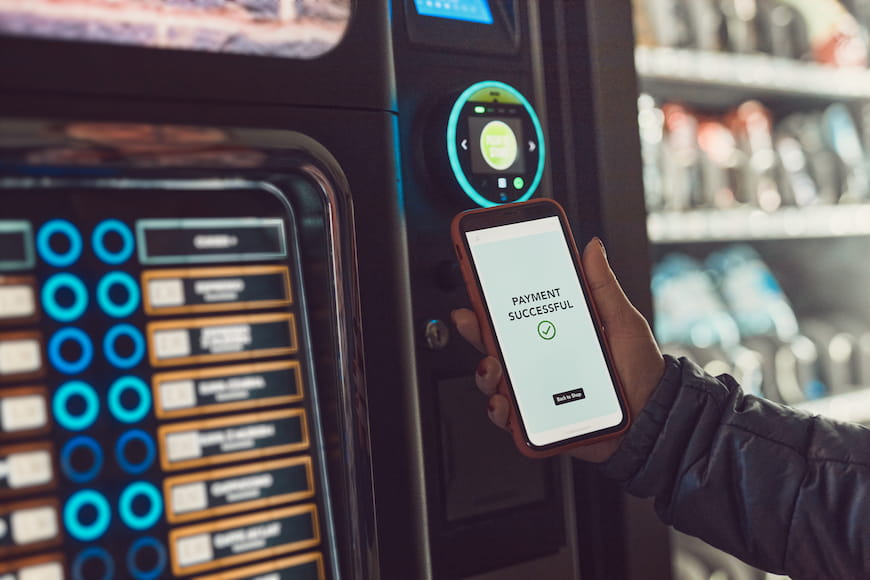Over the past decade, the percentage of young people experiencing mental health issues has risen dramatically – and the pandemic only worsened the situation. In 2020, many higher learning institutions experienced a tripling or quadrupling in the number of students seeking accommodations for mental health disorders. The sheer volume of students facing problems like anxiety and depression is prompting post-secondary leaders to find new ways of supporting student mental health in higher education.
Digital tools, like virtual therapy and crisis text lines, connect students to licensed professionals remotely. Offered alongside traditional support services, these new solutions are increasing in popularity as higher learning leaders seek to scale up support without overtaxing campus counseling services.
Firing on all cylinders is critical. Robust mental health strategies help maximize student retention, well-being, and performance. They can also help prevent more severe outcomes like suicide or hospitalization.
However, these initiatives fall short when they don’t include a strong focus on diversity, equity, and inclusion.
This comprehensive study states that certain racial/ethnic groups likely experience “elevated depression, anxiety and suicide risk compared to [non-hispanic white] students or all other students in college samples.”
A survey of mental health struggles among first-year students during the pandemic found that Black students were among the hardest hit: within this group, depression grew by 89%.
Problems associated with the rising rates of loneliness and social isolation among young people, in general, are magnified for students who belong to marginalized and underrepresented groups. On top of that, individuals from specific groups can also experience unique issues like racial trauma. And while psychological distress is typically more prevalent among marginalized students, many of these students tend to seek help less often.
The data paints a troubling picture, but there are a few bright spots. Awareness of the barriers to mental health is on the rise, and several researchers, counselors, and higher learning leaders are working to make university mental health initiatives as inclusive as possible.
In this podcast, hosted by Diverse (a trade magazine for underrepresented groups in higher education), various experts explored solutions for addressing the mental health needs of minoritized college students.
Here are some key tips for higher learning leaders looking to improve student mental health at the institutional level based on key takeaways from that podcast and other vital resources:
A common theme that emerged from the Diverse podcast is that no two students are exactly alike. For example, the experience of a student of Latin American descent at Campus A is different a student at Campus B.
The key is to hear about the unique concerns of students at your campus, stated Nathaan Demers, VP of Clinical Programs & Strategic Partnerships, YOU at College. Conduct surveys, research, and first-hand focus groups to determine which interventions are needed. Then act on the feedback and let students see the impact of vocalizing their concerns.
Fostering a sense of belonging is critical to promoting student well-being. During this Bibliu vodcast, Dr. Daniel J. Phelan, President of Jackson College, describes how his administration has established affinity groups designed to understand and support the various racial and ethnic communities served by the institution. Providing a space for minoritized students to connect fosters relationships and provides more opportunities to rally around common causes, increasing student mental health.
“Students who are minoritized tend to access traditional, in-person supports at lower rates than majority populations,” stated Demers. He advised that institutions “go out of their way” to make sure these students know university mental health initiatives are designed for them and their unique circumstances.
Online screening also provides another avenue for increasing the likelihood of help-seeking among students from underrepresented groups. Remote services offered by licensed counselors can be just as powerful as in-person therapy – and more cost-effective.
A student from an underrepresented group might prefer to be paired with a counselor who looks like them and is more likely to have experience with the same issues. For others, it might not matter as much. The key is to give students the option.
Actively recruit and hire diverse campus counselors, and when working with third parties who offer counseling services remotely, seek partners who value diversity. However, counselors who belong to underrepresented groups are in high demand, and finding more of them might take time.
Instead of going to the counseling center, a minoritized student might confide in a faculty member. As Amy Gatto, Senior Manager of Higher Ed & Evaluation at Active Minds noted during the Diverse podcast:
More than 80% of faculty have regular conversations about mental health with their students. Still, less than half of faculty can recognize when a student is in distress.
Higher learning institutions can provide faculty with online resource portals or apps for directing students to the appropriate support systems. The goal is not to turn all faculty members into mental health experts but to give them tools to point students in the right direction.
When mental health issues go unaddressed, students are more likely to struggle academically. A key component of making higher education more equitable lies in making mental health services more inclusive.
By acting on the concerns of students from underrepresented groups, giving them a space to connect with others, enhancing traditional support with digital offerings, and providing more faculty with adequate mental health resources, higher learning leaders can help students who would otherwise fall through the cracks in the system. This way, university mental health initiatives can be put to good use–for all students.

Drawing on insights from Erik Russell of Occidental College on Campus Convos, this blog explores how innovations in auxiliary services reveal a bigger lesson for higher ed: let technology deliver on-demand convenience, while people provide the human touch that makes the student experience truly personal.
.jpg)
Rural community colleges are lifelines opportunity face unique challenges, like broadband gaps and transportation barriers. Based on the Campus Convos episode with Dr. Bryan Newton of Glen Oaks Community College, we're showing how rural colleges are turning obstacles into innovation.